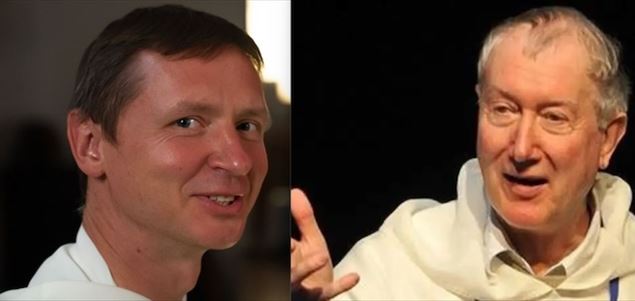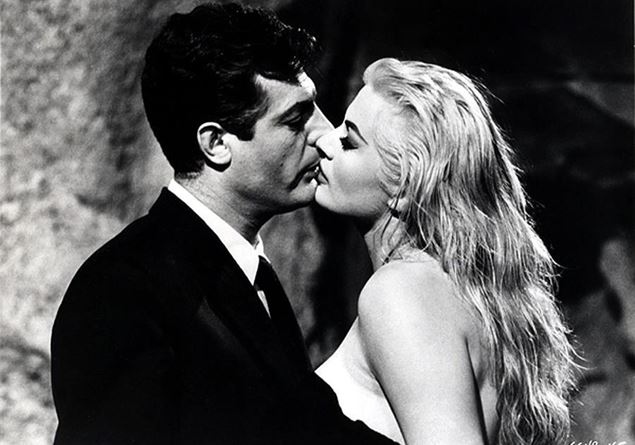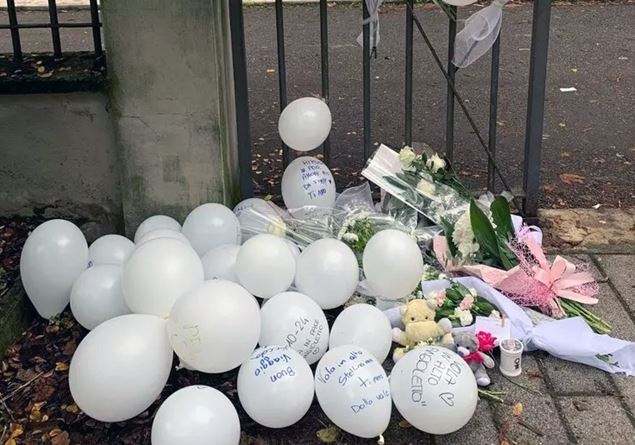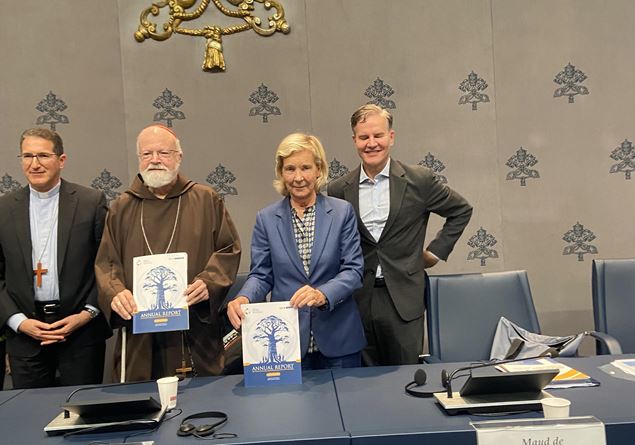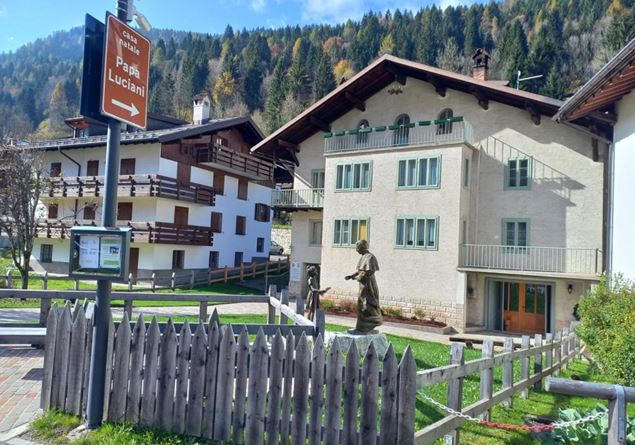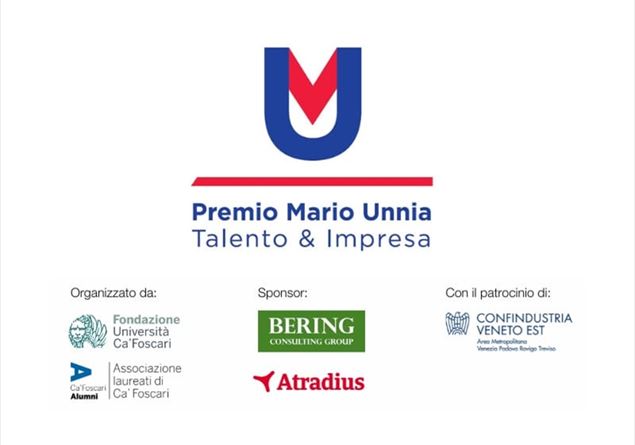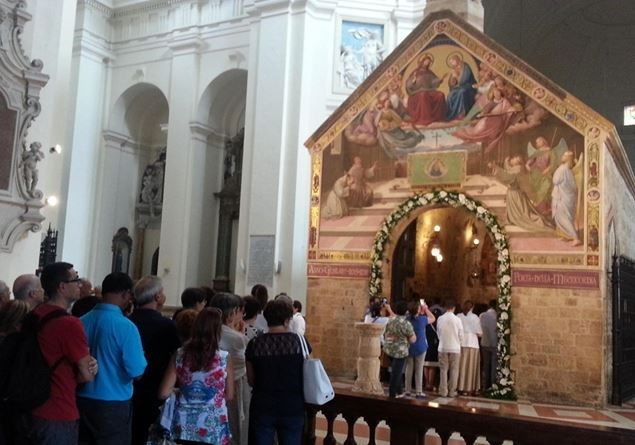
The majestic Basilica of Saint Mary of the Angels in Porziuncola, built on the initiative of St. Pius V starting from 1569 and located about four kilometers from Assisi, it encloses within its walls the ancient chapel of Porziuncola, linked to the memory of St. Francis of Assisi. Today on its facade there is a fresco depicting the institution of the Pardon of Assisia work by GF Overbek from Lübeck (1829-1830), who wanted to decorate that famous place in this way.
How did the “PERDONO D’ASSISI” come about?
It was at Porziuncola that the Saint of Assisi had the divine inspiration to ask the Pope for the indulgence which was then called, precisely, “of the Porziuncola or Great Pardon”, whose feast is celebrated on August 2.
It is the diploma of Brother Theobald, Bishop of Assisi, one of the most widespread documents, that reports it. St. Francis, on an unspecified night in July 1216, while he was kneeling before the small altar of the Porziuncola, immersed in prayer, suddenly saw a dazzling light illuminate the walls of the humble church. Seated on a throne, surrounded by a host of angels, Jesus and Mary appeared in a sparkling light. The Redeemer asked his Servant what grace he desired for the good of men. St. Francis humbly replied: “Since it is a miserable sinner who speaks to You, O merciful God, he asks You for mercy for his sinful brothers; and may all those who, repentant, cross the threshold of this place, have from you, O Lord, who see their torments, forgiveness for the sins committed.”.
“What you ask, O Brother Francis, is great,” the Lord told him, “but you are worthy of greater things and will have greater things. I therefore accept your prayer, but on condition that you ask my vicar on earth, on my behalf, for this indulgence.”
Giotto, Francis Preaching Before Honorius III, Upper Basilica of Assisi
THE REQUEST TO POPE HONORIUS III
At the first light of dawn, therefore, Francis, taking with him only Brother Masseo of Marignano, headed towards Perugia, where the Pope was then. He sat on the throne of Peter, after the death of the great Innocent III, Pope Honorius IIIan elderly but very good and pious man, who had given what he had to the poor. The Pontiff, having heard the story of the vision from the mouth of the Poor Man of Assisi, asked for how many years he had been asking for this indulgence.
Francis replied that he was asking for “not years, but souls” and that he wanted “that whoever comes to this church confessed and contrite, be absolved from all his sins, guilt and punishment, in heaven and on earth, from the day of baptism until the day and hour that he enters the said church”. This was an unusual request, given that such an indulgence was usually granted only to those who took up the Cross for the liberation of the Holy Sepulchre, becoming crusaders.
The Pope, in fact, pointed out to the Poverello that “It is not the custom of the Roman court to grant such an indulgence”. Francis replied: “Now what I ask is not from myself, but from him who sent me, our Lord Jesus Christ.”. Despite the opposition of the Curia, the Pope granted him what he requested (“It pleases Us that you have it”). On the point of saying goodbye, the Pope asked Francis – happy for the concession obtained – where he was going “without a document” attesting to what he had obtained. “Holy Father,” replied the Saint, “your word is enough for me! If this indulgence is the work of God, He will take care of manifesting His work; I do not need any document, this paper must be the Most Holy Virgin Mary, Christ the notary and the Angels the witnesses”. The indulgence was obtained, therefore, “vivae vocis oraculo”.
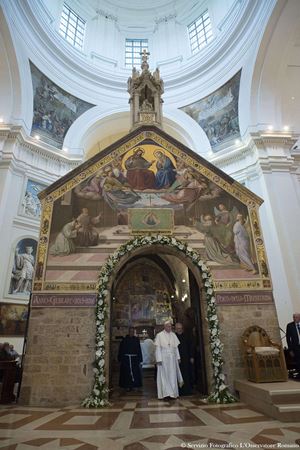
Pope Francis visits the Porziuncola church in Assisi in 2016
WHEN WAS IT OFFICIALLY ESTABLISHED?
The August 2, 1216before a large crowd, St. Francis, in the presence of the bishops of Umbria with a soul filled with joy, promulgated the Great Pardon, for every year, on that date, for those who, pilgrim and repentant, had crossed the threshold of the Franciscan temple. In 1279, the friar Pietro di Giovanni Olivi wrote that “this indulgence is of great use to the people who are thus driven to confession, contrition and emendation of sins, precisely in the place where, through St. Francis and St. Clare, the state of evangelical life suitable for these times was revealed”.
Under what conditions can indulgence be obtained?
Receive absolution for one’s sins in sacramental Confession, celebrated in the period that includes the eight days before and after the visit to the Porziuncola church, to return to God’s grace; participate in Mass and Eucharistic Communion in the same time frame indicated for Confession; visit the Porziuncola church where the profession of faith must be renewed, through the recitation of the Creed, to reaffirm one’s Christian identity, and recite the Our fatherto reaffirm one’s dignity as children of God, received in Baptism; recite a prayer according to the Pope’s intentions, to reaffirm one’s belonging to the Church, whose foundation and visible center of unity is the Roman Pontiff.
Normally, an Our Father, a Hail Mary and a Glory be are recited; however, individual believers are given the faculty of reciting any other prayer according to their piety and devotion towards the Pope.
On which days can one obtain the “Pardon of Assisi”?
In the sanctuary of Porziuncola, in Assisi, thanks also to a special decree of the Apostolic Penitentiary dated 15 July 1988 (Sacred portals of the aedes) one can gain indulgence, for oneself or for one’s deceased, under the same conditions, during the whole yearonly once a day.
While in all the parish churches and Franciscan churches around the world you can make money from noon on August 1st to midnight on August 2nd of each year.
What is indulgence?
In the Catechism of the Catholic Church (nn. 1478-9) we read: «An indulgence is obtained through the Church which, by virtue of the power of binding and loosing granted to her by Jesus Christ, intervenes in favor of a Christian and opens to him the treasure of the merits of Christ and the saints so that he may obtain from the Father of mercies the remission of the temporal punishments due for his sins. Thus the Church does not only want to come to the aid of this Christian, but also to push him to perform works of piety, penance and charity (Cf. Paul VI, Apostolic Constitution Indulgentiarum doctrina, 8; Council of Trent: DS 1835).
Since the faithful departed in the process of purification are also members of the same communion of saints, we can help them, among other things, by obtaining indulgences for them, so that they may be relieved of the temporal punishment due to their sins. Through indulgences the faithful can obtain for themselves, and also for the souls in Purgatory, the remission of the temporal punishment which is the consequence of sins. (CCC 1498)»




